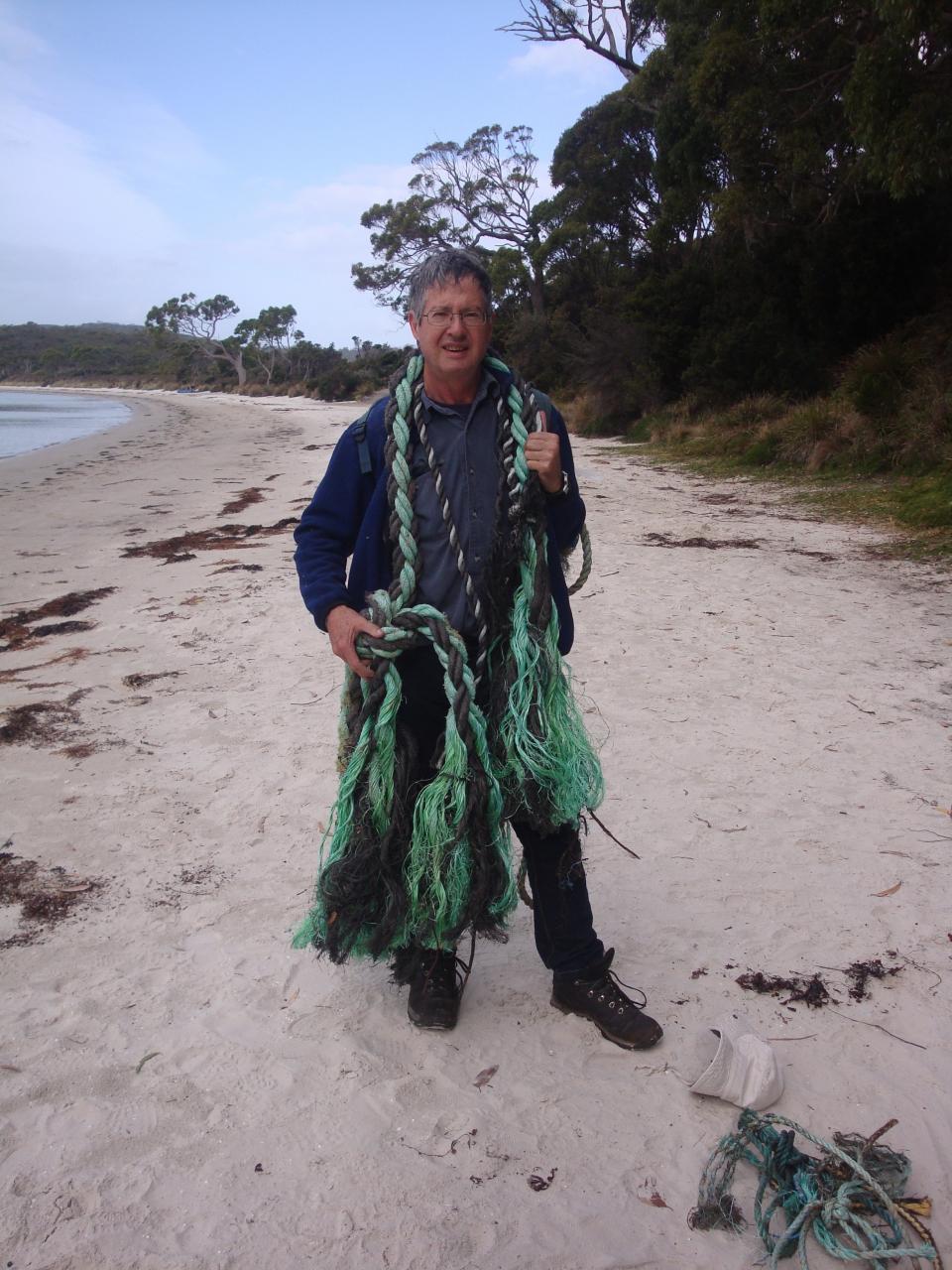April 27, 2016 Updated 4/27/2016
Email Print

Kate Tilley Beachcomber Clive Strauss festooned with rope and fishing line collected on a short stretch of coastline on Bruny Island, off Australia’s island state of Tasmania.
An Australian Government report has recommended banning plastic bags in all states and territories, banning microbeads and introducing container deposit schemes across the nation by 2020.
The Senate Environment and Communications References Committee released “Toxic tide: the threat of marine plastic pollution in Australia,” a major 198-page report containing 23 recommendations on April 20.
The committee wants:
• Legislation to force states and territories to adopt container deposit schemes by 2020.
• Support for states and territories to ban single-use lightweight plastic bags.
• An immediate ban on importing and producing personal care products containing microbeads.
• Better industry reporting and compliance, and increased enforcement, through the Australian Packaging Covenant (APC).
• An APC review to include support for developing “innovative packing solutions that offer alternatives to plastics.”
• A working group established under the auspices of the existing committee of all environment ministers to identify regulatory and other measures to stop plastics entering the marine environment, particularly effective law enforcement to stop nurdles entering the waste management system.
• The plastics industry funding for scientific research.
• More research on the effects, extent and sources of marine plastic pollution in Australian waters and a national marine pollution database.
• More support for clean-up activities, including projects for ‘ghost’ fishing net recovery and research to identify the extent of ghost nets in Australian waters and find ways to stop the loss of fishing gear.
• Technologies to tag fishing gear and support for Australian and regional fishing industries to introduce them.
• Government support for targeted education campaigns to change consumer behavior on use of plastics and provide information about alternatives to traditional plastic.
• A national policy framework for stormwater management.
The Sydney-based Boomerang Alliance, a network of 35 environmental groups, said the report confirms its worst fears about the extent and risks of multiple sources of plastic pollution.
Alliance director Jeff Angel said the alliance presented evidence to the committee hearings that, for the first time, calculated the plastic pollution load on Australia’s environment.
“We found previous government estimates were wildly understating the problem. The bipartisan Senate inquiry has confirmed it is a very serious situation including a looming health crisis from contamination of seafood.”
The report identified that intestinal uptake of microplastics may occur in humans who ingest contaminated seafood, however it said that may depend on the size of the particles.
Angel said at least 50 percent of the pollution can be stopped with container deposit schemes, bans on plastic bags and microbeads, and strict controls on factories. “The Senate report will help accelerate our campaigns,” he said.
Dave West, Boomerang Alliance’s national policy director, said: “For too long, government agencies have been slow to act and their inadequate information base has simply served to bias cost-benefit studies towards ineffective programs that have done little to stop the ever-accumulating plastic load in the marine environment. Plastic doesn’t disappear; it just breaks up into smaller and smaller pieces of microplastic, entering the food chain.”





























